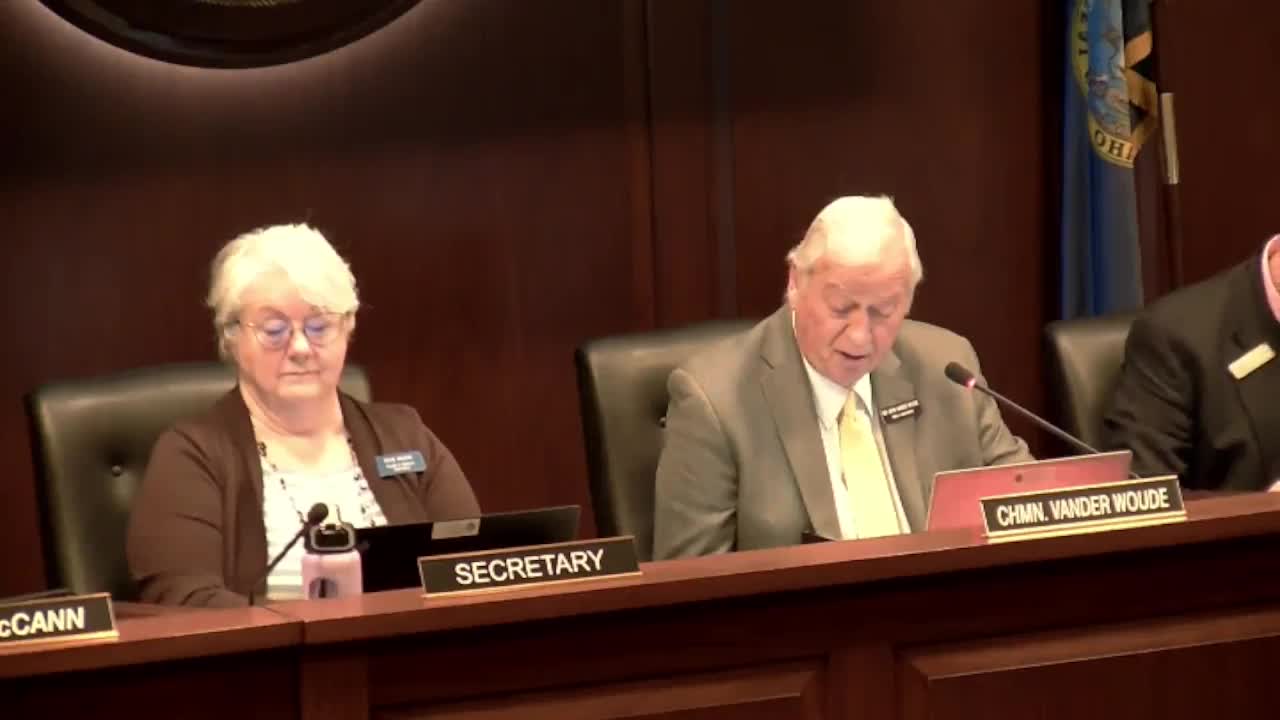Committee advances House Bill 243 after hourslong debate on daycare ratios, supervision and local control
Get AI-powered insights, summaries, and transcripts
Subscribe
Summary
The House Health and Welfare Committee voted to advance House Bill 243, a measure to preempt more‑stringent local daycare licensing and remove statutory child‑to‑staff ratios, after extended testimony and a roll‑call vote of 11–4.
The House Health and Welfare Committee voted 11–4 to send House Bill 243, a measure that would preempt local daycare licensing and remove specific child-to-staff ratios from state statute, to the full House with a “do pass” recommendation after extended testimony and questioning during a lengthy committee hearing.
Representative Barbara Ehardt (R-District 33), sponsor of House Bill 243, said the bill revises Idaho’s daycare policies to reduce regulatory burden and expand the number of small, in‑home providers. Ehardt described long experience overseeing preschool programs and said the bill “is going to go a long way into solving that problem” by returning flexibility to “mom-and-pop” home providers. Representative Rob Furnas (R-District 31) and Representative Tanya Bergoyne (R-District 29) also spoke in favor of deregulation as a means to increase supply.
The bill’s principal author, legislative counsel and lobbyists for providers explained several key elements: it repeals Idaho Code section 39‑1108 (the current preemption provision that allows local governments to impose more stringent licensing), removes enumerated ratios from statute and instead requires providers to adopt a written ratio policy and make that policy available to parents, and establishes a rule‑making process so the Department of Health and Welfare can set numerical standards this summer that would apply for providers accepting federal subsidy money.
Kate Haas, speaking for Wonder School (a private provider support organization), framed the change as clarifying “active supervision” and allowing judgment by providers based on age and development. Haas said the bill does not change statutory safety standards and noted the proposal includes a process to bring rules from administrative code into statute next year.
Opponents, including Idaho Voices for Children, licensed providers, university early‑childhood faculty, the City of Boise and parent testifiers, urged rejection. Christine Tiddens, executive director of Idaho Voices for Children, said “the bill strikes Idaho’s current child to staff ratio from statute and rule and it replaces it with language that puts the responsibility of establishing ratios in the hands of individual providers.” Tiddens and multiple other testifiers said research links loose ratios to higher injury risk and that Idaho already ranks low nationally for childcare regulations.
Kathy Grismeyer, Boise’s director of policy and government affairs, testified that Boise licenses about 200 facilities and more than 2,000 childcare workers and that the city has invested in local programs to shorten licensing time and reduce fees. Grismeyer said the city’s role includes responding to complaints and performing inspections and that removing local oversight raises unanswered questions about transition costs and response time.
Other points from witnesses and members:
- The bill keeps the misdemeanor offense for operating without a license but removes the misdemeanor for failure to post a license. - The bill clarifies that incomplete applications are considered abandoned after six months; completed licenses will be valid for two years unless suspended or revoked. - Background check requirements for in‑home providers caring for four or more children remain in law, according to bill supporters and witnesses; penalties for operating without passing a check remain. - Supporters pointed to comparisons with other states (Utah was cited as allowing up to eight children without a license) and to economic arguments that regulation increases costs and reduces capacity.
After closing remarks from sponsors and floor discussion among committee members, Representative Redmond moved to send House Bill 243 to the floor with a due‑pass recommendation. The committee recorded a roll call: 11 members voted yes and 4 voted no (the roll call list as recorded in committee minutes is reproduced below). The bill will proceed to the House floor for further debate and possible amendment.
Votes at a glance (committee roll call on sending HB 243 to the floor):
- Aye: Chairman Vanderwater; Vice Chair Erickson; Representatives Healy; Redmond; Beissinger; Bergoyne; Kahler; Furnas; Leavitt; Raiser; Thompson (11 votes) - Nay: Representatives Wheeler; McCann; Rubel; Egbert (4 votes)
The committee hearing included substantive questions about how the Department of Health and Welfare will handle oversight and rule‑making during any transition, the treatment of federal subsidy rules for providers that accept ICCP (Idaho Child Care Program) dollars, and the degree to which local governments will retain zoning, building and business permitting authority for child‑care facilities. Several witnesses urged more targeted supports—such as better ICCP reimbursement rates, employer‑provided childcare, and tax incentives—rather than the statutory changes proposed in HB 243.
The bill’s next step is consideration on the House floor; the committee record shows the motion to advance passed and the bill was sent with a due‑pass recommendation.
